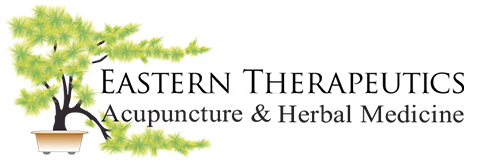How does acupuncture work & how will it feel?
Acupuncture is a key component of Traditional Chinese Medicine. Acupuncture balances Qi and encourages it to flow. If Qi is able to reach and nourish every cell, tissue and gland in the body, then the body will have the natural ability to heal itself.
Some people are energized by the treatment, while others feel very relaxed. Acupuncture needles are disposable, sterile and hair-thin. People experience acupuncture differently, but most feel little or no discomfort.
Is acupuncture safe?
Yes! It is a safe and effective way to address a variety of medical problems because it works with the body's own natural ability to heal itself. Relatively few complications have ever been reported. The FDA requires that only sterile, non-toxic, "single use" needles be used.
What should I expect at my first visit?
Before or during your first office visit, you will fill out an extensive Health History questionnaire to obtain a complete picture of your health and needs. Your first visit will be an hour and a half so that our practitioners can work with you to effectively diagnose your condition, structure an appropriate plan, and get your first treatment!
What is Traditional Chinese Medicine?
The basic techniques within Traditional Chinese Medicine (TCM) are acupuncture, tui-na (bodywork), qi gong (energy work), and herbal medicine. They have been used for thousands of years to help diseases of the body, mind and spirit. Today these techniques are used to treat conditions from back pain to depression to high blood pressure.
Chinese medicine views the body as subject to the same universal laws and principles of harmony and balance as the rest of the universe. It does not draw a strict line, as Western medicine does, between mind and body. TCM believes that emotions are as influential on disease as purely physical mechanisms. Factors like work, environment, lifestyle and relationships are fundamental to the overall picture of a patient's health. While Western medicine typically describes health in terms of measurable physical processes made up of chemical reactions, TCM uses ideas like yin/yang, Qi, organ systems and meridians to describe health and the body. To understand the principles behind acupuncture, it makes sense to explain some of these fundamental terms:
Qi
Qi (pronounced chee) is a fundamental concept of Chinese medicine. It is the life energy of the universe. It is the invisible vital force that creates and animates life. We are all born with inherited amounts of Qi. During our life we also acquire Qi from the food we eat and the air we breathe. The level and quality of a person's Qi also depends on the state of physical, mental and emotional balance. A person's state of health is influenced by the quality, quantity, and balance of Qi.The Five Elements
According to Traditional Chinese theory, the world and body are made up of five main elements: wood, fire, earth, metal, and water, and each organ is associated with one of these elements. These elements are all interconnected, and each element either generates or controls another element. The Chinese system uses elements and organs to describe and treat conditions.
For instance, water controls fire. The kidney is associated with water and the heart is associated with fire, so the two organs are related the same way water and fire are related. If the kidney is weak, then there might be a correlated fire problem in the heart. The goal of treatment will be to cool the heart system and/or increase energy in the kidney system, via acupuncture and/or herbs.
The Chinese have developed an intricate system of how organs and elements are related to physical and mental symptoms. Although this system sounds suspect to Western scientists, some interesting parallels have been observed. (eg, Western medicine has observed that with severe heart problems, kidney failure often follows, but it still does not know exactly why. In Chinese medicine, this connection between the two organs has long been established.)The Meridian System
In the Chinese system, there are twelve main energy pathways. Each of these pathways is named for an organ: the lung, large intestine, stomach, spleen, heart, small intestine, urinary bladder, kidney, liver, gallbladder, pericardium, and the "triple warmer," which represents the entire torso region.
Each organ has Qi energy associated with it, and each organ interacts with particular emotions. As there are twelve organs, there are twelve types of Qi which can move through the body, and these move through twelve main channels or meridians. TCM connect symptoms to organs. That is, symptoms are caused by yin/yang imbalances in one or more organs, or by an unhealthy flow of Qi from one organ to another. Each organ has a different profile of symptoms it can manifest.Yin and Yang
According to Chinese philosophy, the universe and the body can be described by two opposite, but complementary principles: yin and yang. For example in temperature, yin is cold and yang is hot. In gender, yin is female and yang is male. In activity, yin is passive and yang is active. In light, yin is dark and yang is bright.
Nothing is ever completely yin or completely yang, but always a combination of the two. These two principles are always interacting, opposing, and influencing each other. The goal in TCM is not to eliminate either, but to allow the two to balance each other and exist harmoniously together.
For instance, if a person suffers from symptoms of high blood pressure, the Chinese system would say that the heart organ might have too much yang, and would recommend methods either to reduce the yang or to increase the yin of the heart. Acupuncture therapies seek to either increase or reduce yang and yin in particular regions of the body.


